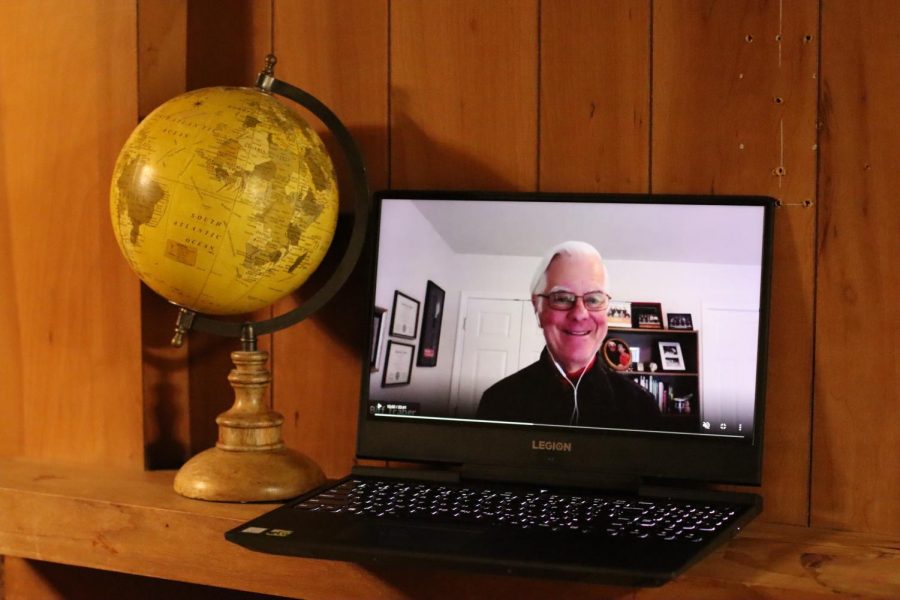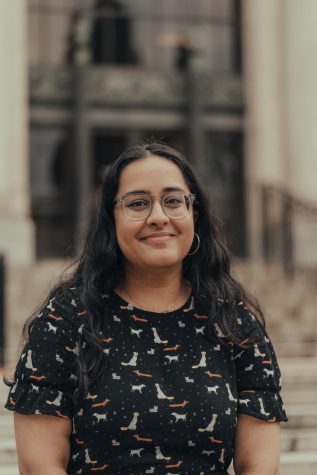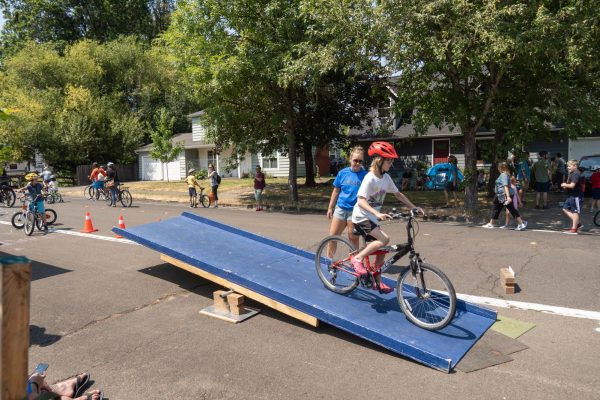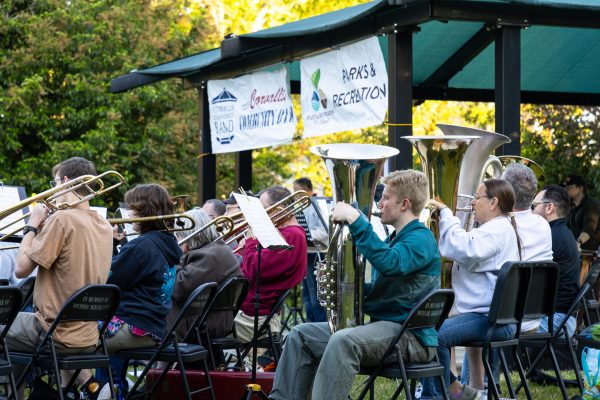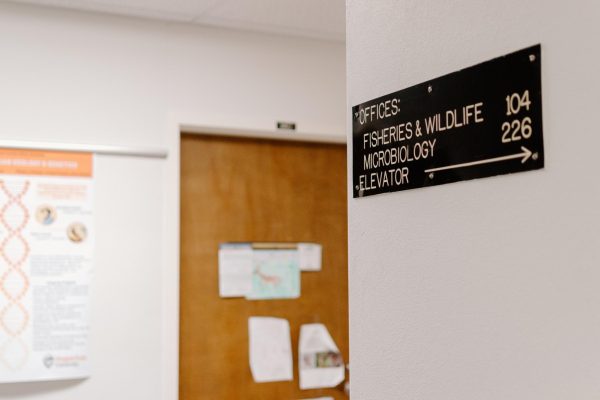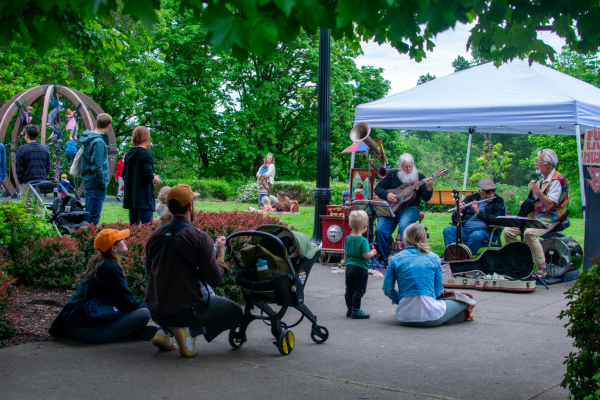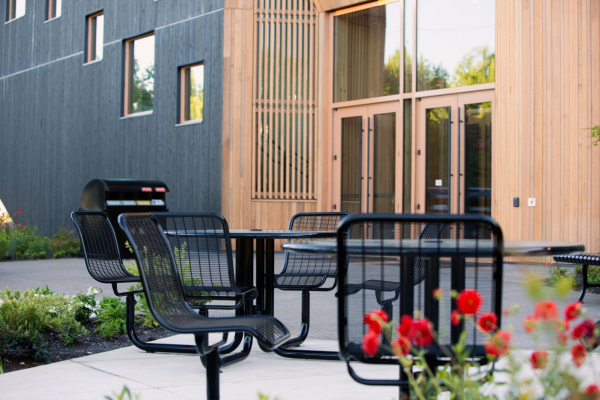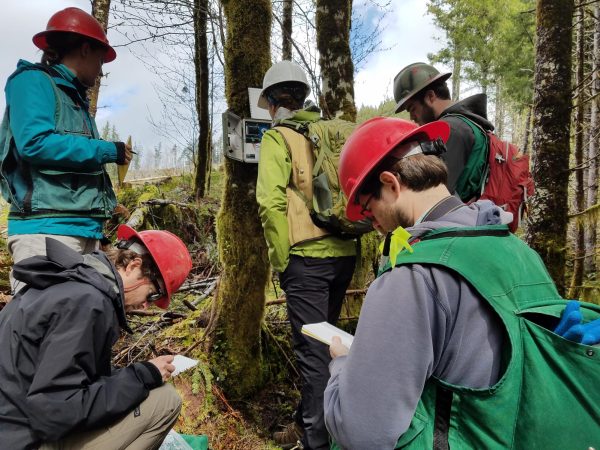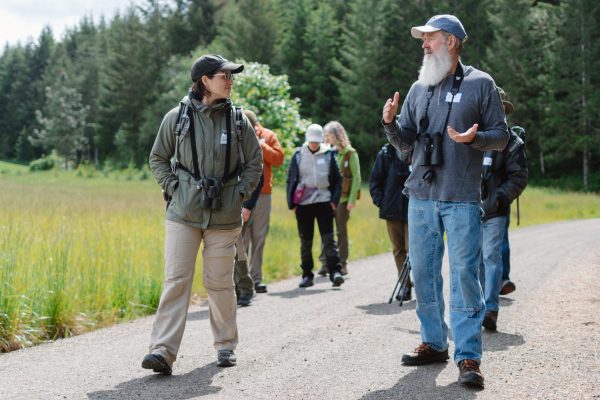Engagement, transparency, respect: City Councilors on forming connections in politics
February 22, 2021
No matter how their interest in government work started, both Corvallis City Councilors and students in the Associated Students of Oregon State University share a passion for helping their community.
City councilors recently shared advice for the newly elected ASOSU officials, drawing on their own experiences in City Council to provide insight into politics.
Mayor of Corvallis Biff Traber said he was an active voter who followed politics, but did not have any interest in elected office at the start of his career, when he worked in software for AT&T.
“Twenty years ago I never thought about or had a goal of elected office,” Traber said. “At the time I retired, I began giving back to the community. First, I worked with non-profits and then got involved in supporting the local Democratic Party. This eventually led to being asked to run for City Council and then Mayor.”
Some of these non-profit and service organizations that Traber worked with included the local Rotary Club, Boys & Girls Club and the food bank.
Essentially, Traber went from setting up telephone systems for the local Democratic Party in 2004 to attending central committee meetings; eventually demonstrating his interest in the work that the previous treasurer did.
Traber was later asked to run for mayor by long-time politician Barbara Ross, but chose to instead work on Julie Manning’s mayoral campaign as treasurer.
This building of connections and conversations are what Traber called iterative processes, which eventually led to his running for mayor after Manning’s second term.
City Council President Hyatt Lytle said her journey in local government began a few years ago.
“It was early July, in the summer of 2016, and if you remember, this was pretty much the summer of day-by-day tragedy, as it led with the police-related shootings of Alton Sterling and Philando Castile,” Lytle said. “Following the shootings began mass protests, and some more heavily against police. Then the Dallas incident happened, where it turned into the bullets being turned against police. Then for the days after that, it was almost daily, and some days multiple times, all across the country there were ambushes against police.”
Lytle said she and her friend Nancy Wyse were becoming deeply affected by these daily incidents, and wondered if anything like those incidents could happen in Corvallis, because tensions seemed to be growing and growing.
“We drafted a letter to the mayor and chief of police at the time,” Lytle said. “However, when we tried to find out about anything happening in Corvallis, it was silence. At the city council meetings that month, nothing was really said at all.”
Timing was also part of Lytle’s reason to run at the time, because it was around late July that the city hosted an orientation on running for city council.
“We both attended the orientation, and for me, the decision to run for council was like ‘this is what I am supposed to do right now,’” Lytle said. “And I went ahead and moved forward with all the required steps and was elected in November of that year.”
Lytle ran for council vice president in the second year of her first term and was unanimously voted in at the first meeting of 2018. From there, Lytle naturally progressed to the role of council president.
Lytle said the most important parts of any political position are engaging with the public and being transparent.
“There seemed to be a disconnect between constituents in my ward and the local government, and I found myself as the conduit between the two in order to inform, promote awareness, and the reverse, get public input and bring it back to the dais,” Lytle said.
Lytle said she loves the representation and public engagement involved with her position because they motivate her to keep going.
“There [are] always ways to innovate, change and do things better than ‘how they have always been done’—which I admit is one of my biggest pet peeves,” Lytle said. “Times change, issues change, so doing things the same way doesn’t work best for all situations. I am an innovator and that is what best incites change in my book.”
For those that want ASOSU to be the beginning of a political career, Lytle’s advice is for students to always listen to their constituency and do their best to address concerns.
“Make decisions that give your constituency a voice,” Lytle said. “I would add to always look for the more minority groups that are underrepresented and bring their voices to the table. It can sometimes be the same players that always show up to voice their opinions and keep in mind that those same players do NOT represent the whole of your constituency.”
Lytle urges any student with an interest in local issues to bring them to a city council meeting and testify. She considers OSU students in Corvallis to be an underrepresented part of the population when it comes to city issues, and said she is always looking for a way to represent their voices.
“Those three minutes you have to share an issue, interest or concern can be the most powerful of any city council meeting,” Lytle said. “In addition, reach out to your city councilor! We are all regular people and are more than happy to meet with anyone!”
Oregon State University falls under Ward 4—Councilor Gabe Shepherd’s ward, who just joined the Council in January.
Shepherd said the 2016 election results motivated him to improve his understanding of the political landscape and join his family’s history of public service.
Though he was an Oregon State University graduate, Shepherd said he was not a member of ASOSU, but advises students who plan to have a career in politics to make friends now.
“Much of politics is about relationships, many political jobs come through friends or colleagues who know of an opportunity and think you would be great for it,” Shepherd said.
“The first and most important step I took to become a city councilor was [to] show up,” Shepherd said. “I wanted to know what was happening in my city and how my local government was reacting to things on a state and federal level. I began attending city council meetings back in 2017 and rarely missed a meeting.”
Shepherd said he would sit in the back and simply listen to what was going on, hearing the various reports briefings.
“Eventually I asked the mayor for ways to volunteer, which is how I first got involved with the City Legislative Committee and was subsequently appointed to the Budget Commission,” Shepherd said.
Shepherd said that when things are in person again, showing up makes you seen and much harder to ignore.
Traber recommended that students take advantage of the various information sources to be up to date on what the city is working on.
“And remember to be persistent; an issue brought up only once has too much chance of getting lost,” Traber said.
Additionally, Traber said that government work can be demanding and he continues to work at it because of his desire to apply his skills and make Corvallis a better place to live. Working for the city is his way of giving back for what he has received from society over his lifetime.
“This is my way of giving back for what I have received from society over my lifetime,” Traber said. “And the work is very interesting; you can see positive impacts.”
When conversing with someone with political opinions different from their own, Traber said he always sits down and tries to understand where they’re coming from.
“I’m also a firm believer in that there are generally a set of facts that can be interpreted differently or dealt with differently, but there’s still some basic premise there to work from,” Traber said.
For Traber, it’s important to try and appreciate and respect the other person’s point of view.
“If they’re as dedicated as you are, it’s why they’re in this position, then there’s reasons they’re there, and ways they’re making their decisions and the motivation underlying all of it can be very similar to yours,” Traber said.
Working with the Council has allowed Traber to appreciate the City of Corvallis and its residents in a way he had not before.
“I began to realize that if you recognize and support that participation, then when you [make] a decision, the decision is stronger,” Traber said. “And you will learn things along the way that help you refine what your decision is. But it will represent more what the community as a whole feels.”
Above all, Traber said respecting the vote—whether it’s the student population or a Council meeting—is important.
“Once something’s been decided, if you lost, you lost,” Traber said.
In regards to newly elected ASOSU officials, Traber said he would recommend they understand their government’s scope of responsibility, know the issues well, voice their views and propose or take action when decisions come forward—to govern actively.
Lytle offered an open invitation to ASOSU members to audit their City Legislative Committee, which meets during the state Leigslative Sessions, saying that students could get a good idea of how State-level issues affect local issues—even at the university level.
“The city is more than open to accommodate students’ interests in government, and when COVID-19 gets smaller in our societal rear-view mirror, we have several Advisory bodies and committees that regular students can come attend, or even be appointed to, that cover several local interests—from climate, to safety, to arts and culture,” Lytle said. “I will also add that my door is always open if students want to ask me any questions or need help on projects—I love to engage with students however I can.”












































































































